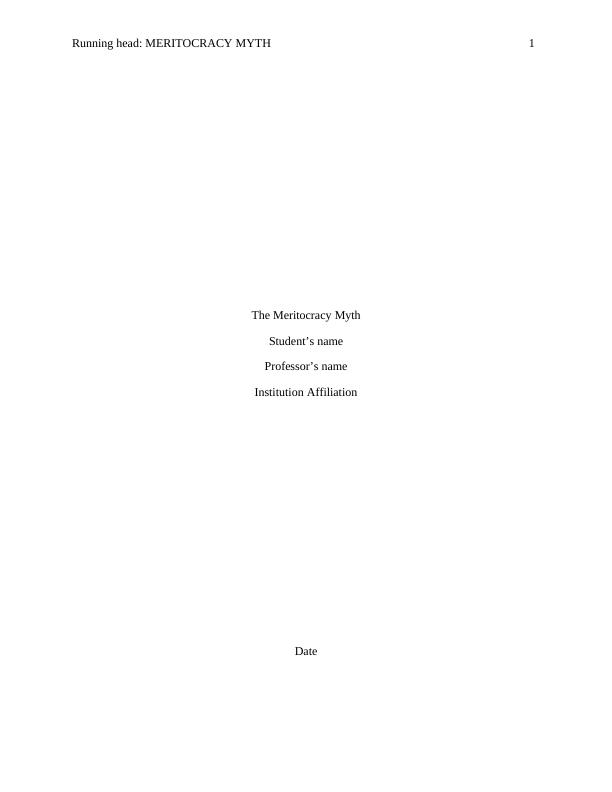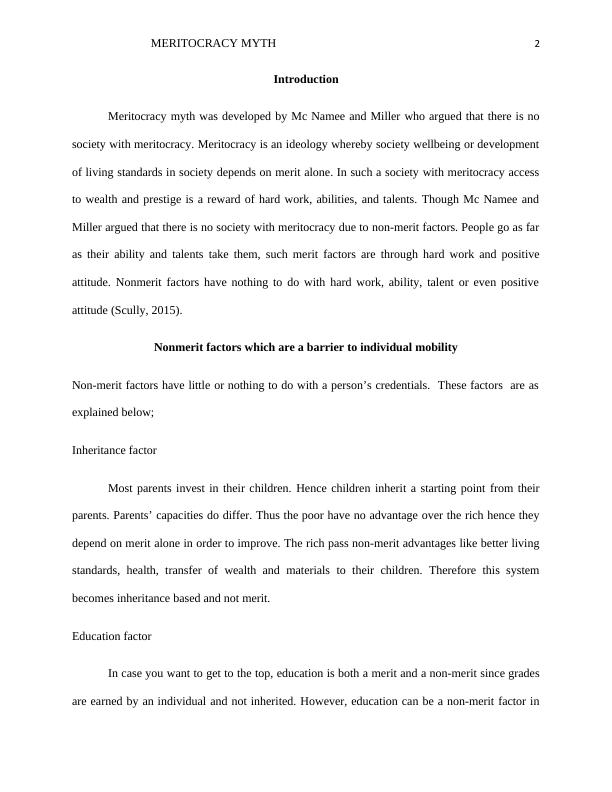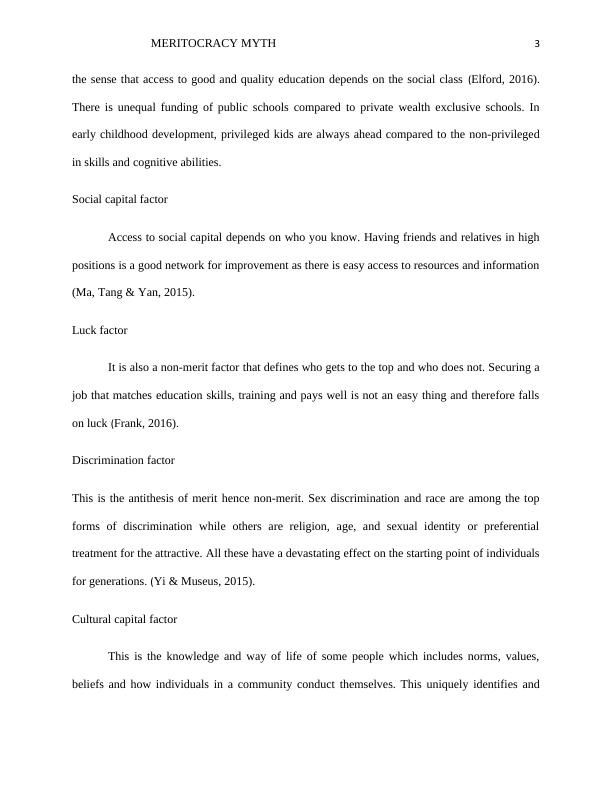The Meritocracy Myth
Added on 2023-01-16
8 Pages1979 Words80 Views
End of preview
Want to access all the pages? Upload your documents or become a member.
Meritocracy
|8
|2085
|346
The Meritocracy Myth Sample Assignment
|8
|2145
|259
Understanding Societies: Meritocracy and Non-Merit Factors in the Australian Education System
|8
|2151
|263
Meritocracy: Myth or Reality in Australian Education System
|11
|2254
|87
SOC102 Social Inequality
|8
|1706
|102
Is Britain a meritocratic society? Discuss the problems associated with such a conception of society?
|11
|3019
|218



